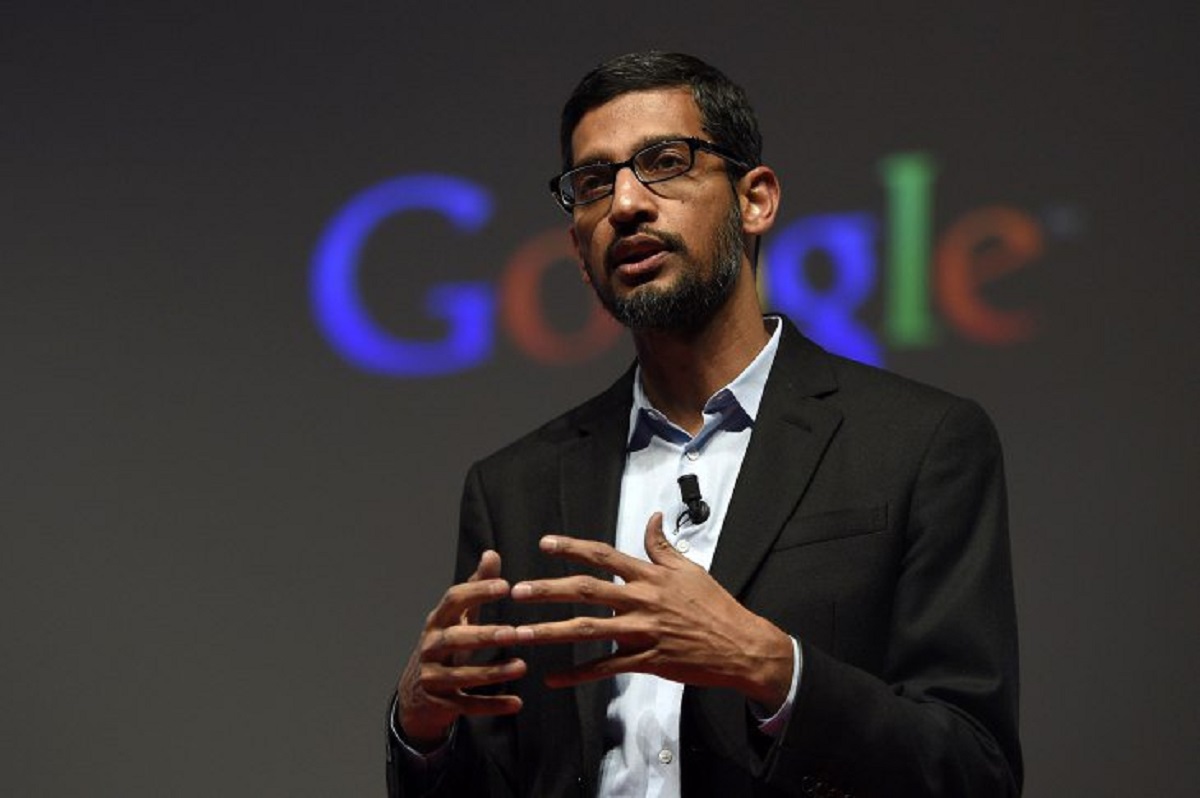
Google CEO Sundar Pichai on Thursday said the company continues to engage closely with partner Jio on the initiative of building an affordable smartphone and that work is underway on the project.
Last year, Google had picked up a 7.7 per cent stake in Jio Platforms for Rs 33,737 crore. It had also entered into a commercial agreement with Jio Platforms to jointly develop an entry-level, affordable smartphone.
“We are focused on building an affordable phone… we are committed to making progress on the project and we are working with them (Jio),” Pichai said in a virtual conference with select reporters from Asia Pacific.
He, however, did not divulge other details, including possible launch date and pricing.
Availability of affordable devices, along with cheap data rates can help bring the internet within reach for more people across the country.
Google’s investment in Jio Platforms was part of ‘Google for India Digitisation Fund’ that was announced last year. In July last year, Pichai had unveiled plans to invest Rs 75,000 crore (USD 10 billion) in India over the next five to seven years to help accelerate the adoption of digital technologies in the country.
“Google is also looking at new opportunities to deploy funds from its USD 10 billion India Digitisation Fund (IDF), and will make some announcements later this year,” Pichai said on Thursday.
Talking about the impact of COVID-19 on these projects, Pichai said the pandemic has highlighted the importance technology plays in people’s lives.
“…We realise the importance technology plays, and be it building products like Google Meets or working to make sure all of this works well on their (telecom operators’) networks, and bringing more affordable access to smartphones and computing, it’s just deepened our efforts there,” he said.
The India-born executive also talked about some of the announcements made earlier this month at its flagship I/O 2021 event. The company had announced a slew of new features including new privacy settings, AI tools and release of the first beta of Android 12 that will become part of its products over the course of the year.
Talking about ethical use of artificial intelligence (AI) tools in technology, Pichai said it is still early days and that the company is approaching the subject by being transparent, sharing and publishing research, and highlighting AI principles among other ways.
“Over time, we’ll have to figure out responsible AI regulations, which promotes innovation, but balances it with responsible oversight…We should never lose sight of the benefits AI is going to bring, just like technology has always brought tremendous benefits and work hard to address the downsides and mitigate it, I think that’s a construct all of us have to do globally,” he said.
Pichai added that Google intends to be a “responsible partner” and thought leader in this area.
“We are all investing in privacy preserving, I think we all need to improve practices across the industry, and we are working to do that on the web and mobile. We need to meet user expectations,” he said.
Pichai noted that there is premium (paid) content and free content which is ad supported, and that both are available to users.
“…We just need to give users tools and controls, choices and newer techniques by which we preserve their privacy,” he added.





